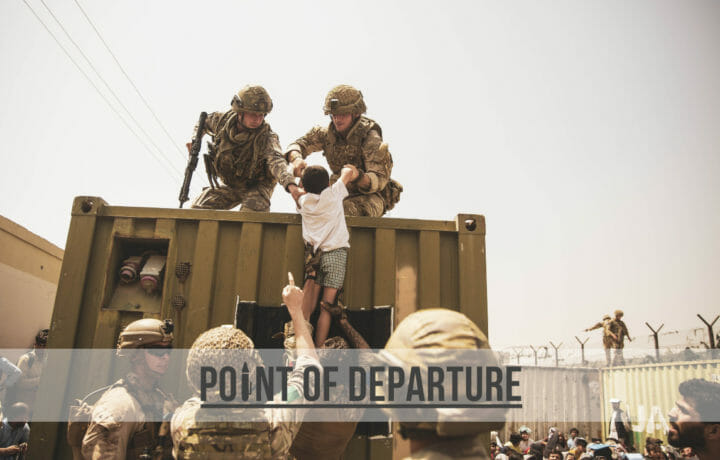As Kabul came crashing down in the wake of the withdrawal of American forces in Afghanistan, the blame game was quick to follow. A number of fingers pointed directly at the elected leaders who funded a twenty-year war without ever bothering to ask basic questions like, “How long will this take?” or “How much will it cost?” Some blamed policymakers who failed to define success while advocating for goals that seemed completely devoid of cultural understanding and realism. Fingers also pointed at the United States military for failing to secure a decisive victory in a part of the world euphemistically called the graveyard of empires. And some were quick to call the chaos in Kabul the result of a massive intelligence failure, comparing it to the withdrawal of forces from Iraq in 2011 that ultimately led to the emergence of ISIS.
But was it really an intelligence failure? The Japanese attack on Pearl Harbor on December 7, 1941, was an intelligence failure driven by inadequate intelligence sharing, faulty threat assessments, and a largely decentralized intelligence community. The Islamic Revolution in Iran in 1979 was also an intelligence failure; just six months before Ayatollah Ruhollah Khomeini’s rise to power, the CIA concluded that Iran was not anywhere near a state of revolution. Finally, the terrorist attacks on September 11, 2001, were the result of a massive intelligence failure. The 9/11 Commission faulted an intelligence community fraught by a lack of focused priorities, outdated structures, and excessive bureaucracy.
What’s an Intelligence Failure?
But was the fall of Afghanistan to the Taliban an intelligence failure? If anything, it was a leadership failure. Is it still an intelligence failure if the necessary information is provided—as was the case in Afghanistan—and policymakers choose to ignore it? To the layman, that’s not an intelligence failure, per se, but maybe a failure of intelligence on the part of the policymakers. But it is. Intelligence analyst and author Ben Stark has previously identified three types of intelligence failures.
1. Failure to process and analyze information.
This is typically the most common form of intelligence failure. Often, analysts will commit what Stark called the cardinal sin of intelligence: disregarding information that doesn’t fit a preferred (or prescribed) narrative. This myopic approach plagues analysis with a tunnel vision that omits details that might otherwise drive a more informed or nuanced understanding of the situation and key actors. Collection efforts will almost always produce the information, but it isn’t processed or presented because it doesn’t fit the narrative.
2. Failure to disseminate and share information.
This plagued the pre-9/11 intelligence community, a combination of “need to know vs. need to share” and “knowledge is power.” The end result was catastrophic failure. If, as Stark notes, intelligence exists to provide an advantage over adversaries, what’s the value in hoarding information? The obvious solution is to foster a culture of intelligence sharing, but maintaining that culture is going to always be a leadership challenge. In a community where knowledge is seen as power, breaking that phalanx is going to be a constant challenge.
3. Failure to act.
This is the end result of the chaos in Kabul. Analysis correctly identified both the threat from the Taliban and the likelihood of the collapse of the Government of Afghanistan. Nevertheless, the White House ignored or discounted that intelligence and chose to withdraw U.S. forces prior to the evacuation of American personnel and Afghan visa holders (or those in the process of obtaining visas). According to Stark, when policymakers act independently of intelligence—ignoring it execution—the result is still an intelligence failure.
A Different Kind of Intelligence Failure in Kabul
In many ways, it seems unfair to call what happened in Kabul an intelligence failure. The intelligence community performed admirably and assessed the situation and threat accordingly. They presented that intelligence, and it was promptly ignored. But it was an intelligence failure. Maybe of a different kind of intelligence, but still a failure.


